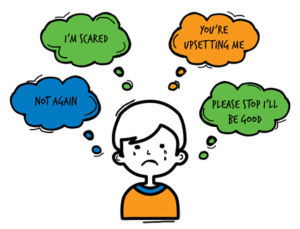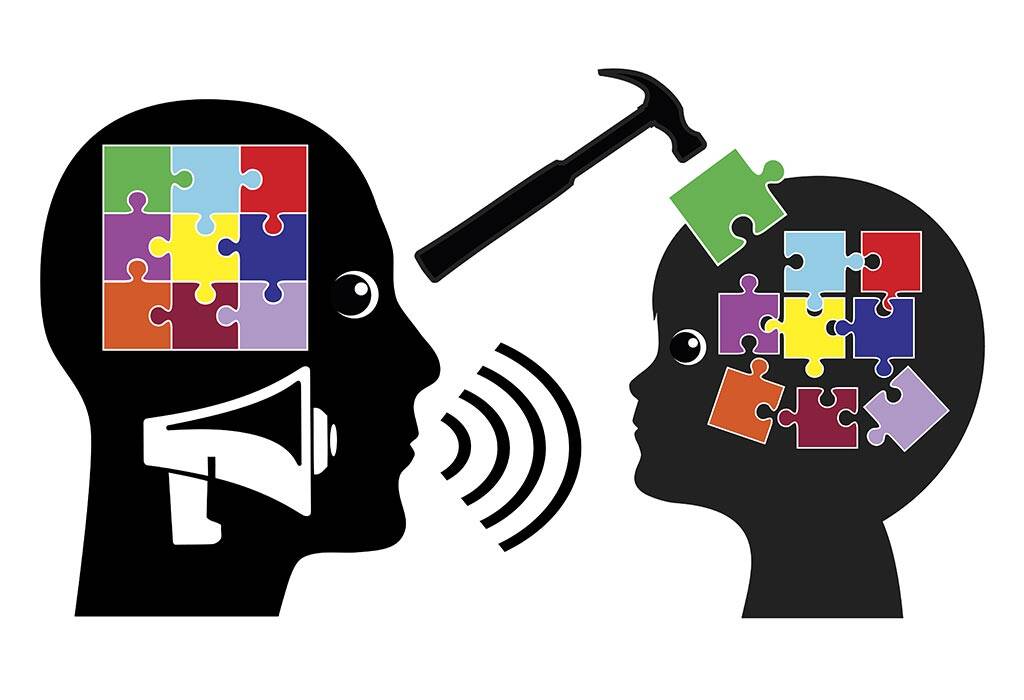Contents
What Is Parental Enmeshment?

Have you ever felt like your parents were too close? It’s called parental enmeshment and it’s where the parent and child are too close. This is a problem because it can make the child like they don’t have enough space to be themselves. If they feel like this, then their life will be very hard. The term “parentification” is sometimes used in place of “enmeshment” when speaking about a child’s experience.
Parental enmeshment can also be defined as when parents get too emotionally involved in their children’s lives. Each child is different, so each parent must find the right way to help them grow up healthy and happy.
Parental enmeshment is a serious problem. It’s characterized by the suffocation of a child and can be caused by trying to do too much to protect your children from pain, criticism, opposition, or from neglect. The effects are excessive dependency, the constant need for attention and reassurance, the inability to form normal friendships with peers or adults, feeling powerless within their own family system, and having no sense of self-esteem.
Signs Of Parental Enmeshment
There are many signs that your child may be suffering from parental enmeshment. These signs include:

- Inability to form healthy friendships with adults and peers
- Excessive need for attention
- Excessive need for praise from parents
- Overly dependent on parents
- Inability to express oneself emotionally or verbally
- They may not want to do anything that you don’t want them to do
- They struggle with separating from you and other family members
- Are afraid to try new things without your consent
- Feel like they have no privacy in their own home
Negative Effects Of Parental Enmeshment
Parental enmeshment can have negative effects on both parent and child in many areas of life, including psychologically, emotionally, socially, sexually, financially, and vocationally.
The most apparent effect is the lack of a healthy parent-child boundary. This can most easily be seen in a reversal of roles, with the parent coming to rely on the child for nurturance and support. However, parental enmeshment also includes an unhealthy level of boundary-blurring in other ways, such as inappropriately personal conversation, invading the child’s privacy, and sharing too much information about adult issues.
Studies have linked parental enmeshment with increased depression in parents and children, including major depressive disorder in both generations. Those who report more emotional problems also frequently indicate that their emotional needs went unmet during childhood. For example, these individuals are almost three times more likely to report emotional incest.
The diagnosis of narcissistic personality disorder oftentimes includes being enmeshed with one’s child as a central feature of the pathology. Those who struggle with codependency often struggle with boundaries and limit setting due to a need for control, low self-esteem, a sense of guilt, and a fear of being abandoned.
Effects Of Parental Enmeshment On Children
When a child is raised with too much parental enmeshment they will have struggles as an adult. They are also more likely to have children that are emotionally dependent on them. This can cause the cycle of enmeshed parenting to continue.

- The child will have a hard time being independent
- They may experience anxiety, low self-esteem, problems with authority, and guilt
- They will not know how to handle normal stressors of life without seeking permission from their parents
- A life full of anxiety and fear
- They can get depressed because they feel like nobody will ever take care of them
- It’s hard for them to make friends with other adults when they grow older
- Problems in school, work, or their relationships because the only person that they’ll trust is you
Parental enmeshment is a problem in children where the parent and child are too close emotionally. This can cause a lot of problems because the child starts to feel suffocated at home, depressed because they feel like nobody will ever take care of them, and they can’t make friends on their own.
Effects Of Parental Enmeshment On Parents And Siblings
When the parent and child are too enmeshed, it can cause problems in other areas of their family system. The parents will have a hard time being objective when making decisions regarding the child’s life. Siblings may have feelings of jealousy or resentment towards the child because of all the attention they receive from their parents.
- Parents can become controlling and manipulative with their children
- They may have difficulty being nurturing to the kids without being too involved
- The siblings may resent the kid that is suffering from parental enmeshment
Ways To Break The Cycle Of Parental Enmeshment

If you are tired of seeing your child constantly relying on you for help, then it’s time to break out of the cycle of parental enmeshment.
- Be more nurturing and less controlling
- Allow them to make their own decisions
- Make sure you have a strong support system in place so that they can lean on other adults if needed
- Invite other people over like church friends or teachers to come and interact with your children so they won’t feel suffocated
- Let your kids make some decisions by themselves even if it’s small decisions like what they want for dinner
- Encourage them to play with other kids and to go out and do things on their own
- Let them have their own friends without you
- It’s important to show kids that failure is okay and that they aren’t perfect
- Let your child accomplish small things before something big in order for them to gain confidence
- Allow children to go out and experience the world on their own so they can build up a sense of independence
- Don’t be too overprotective and take over your child’s problems for them
- Don’t shield children from failure- it’s important for them to understand that failure is okay and that they’re still loved no matter what happens
It’s important to remember that the enmeshed parent/child relationship isn’t always harmful. Some parents can do a good job of creating boundaries with their children as long as they balance it out with nurturing and support. In other words, don’t be too controlling or too neglectful.
Tips For Raising Self-confident And Independent Children

Many kids these days are lacking in self-confidence and independence. Parents play a big role in determining how confident their children feel about themselves and about the future. Here are five ways to raise self-confident and independent children:
1) Make kids feel like they’re always secure and capable of tackling any obstacle. Your child should never feel like they’re not good enough or that something terrible will happen at any second. They need to have a sense of control over their lives so that they can take risks without being too scared to do it.
2) Encourage children to take little risks. Many parents these days do not let their kids go out and be adventurous, but it’s important that kids do this. They need to have a little bit of independence in order for them to grow up into confident adults.
3) Show your children that failure is okay and that you’ll always love them no matter what happens. It’s important for children to know that they’re not perfect and that it is okay to fail at something. They also need to be told that even if they do fail, you still love them unconditionally
4) Teach kids how to persevere in the face of adversity.
5) Don’t be overprotective or try to handle your child’s problems for them. Always encourage them to be independent and have a solution in mind before they go out and face the world.
Parental enmeshment has been described as the role reversal of parent and child. The parent becomes subsumed within the child’s needs to the point that the boundaries of self are dissolved. The child becomes responsible for meeting many of the emotional needs of the parent, including providing nurturance and support to ease significant mental/emotional stressors in parents’ lives. A strong positive bond between parent and child is essential to healthy development, but there is a difference between being supportive and being subsumed into the child’s needs.
How To Stop Parental Enmeshment Before It’s Too Late?

If you think that your child may be suffering from parental enmeshment, the first thing you must do is to stop it before it’s too late. If you allow this behavior to continue then they will most likely struggle with their sense of self-esteem and independence as they get older.
There are ways to stop this problem before it’s too late by assigning chores to children, encouraging them to make friends with other adults so they will feel free outside the house, making sure you know what’s going on in each other lives, and breaking free from the cycle of dependency you can invite other people over like church friends or teachers to come and interact with your children. This will make it seem like they aren’t suffocating and let them have their own voice so they won’t feel too dependent on you.
- Assign chores to your children so they have more independence
- Encourage them to make friends with other adults so they can get out of the house and not feel suffocated at home
- Make sure you know what’s going on in each other’s lives
Tips
The best way to stop parental enmeshment is to slowly start creating boundaries between you and the child. It’s important that these boundaries are not too strict, but firm enough so that they can feel like an adult (like when their parents allow them to stay out later on the weekends).
- Make sure your children feel like they can trust you, but not so much that they never want to leave your side
- Let them have their own voice so they can express themselves and not feel suffocated
- Allow them to be a child without trying to step in every time something goes wrong
- Encourage them to do new things on their own and give them space when you feel they’re ready for it, but don’t push them too far so you won’t suffocate them
- Make sure they know that they can always talk to you and that you’re there for them, but not too much that it makes your relationship with them one-sided
- Let them make choices and let them be responsible for their own actions
- Make sure you’re not overbearing, but there for them when they need you
- Let them have an opinion and let them know that it’s ok to disagree with you sometimes.
Conclusion
Parental enmeshment is a form of co-dependency that can have negative impacts on both the parent and child. They may be unable to separate themselves from one another without feelings of guilt, shame, or anger.
For more information, please contact MantraCare. Parenting is a challenging yet rewarding experience that is crucial for the development and well-being of a child. If you have any queries regarding Online Parenting Counseling experienced therapists at MantraCare can help: Book a trial therapy session


